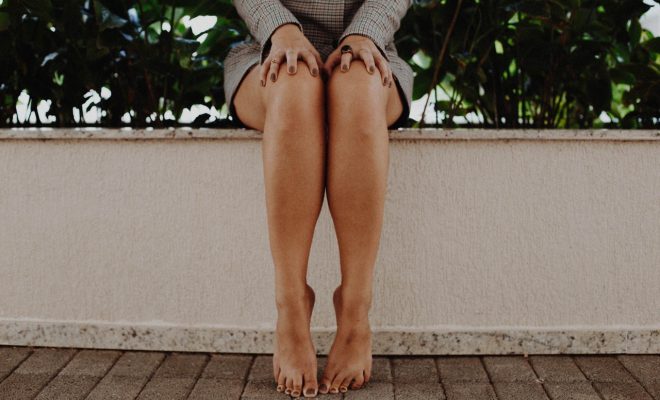
What you should know about varicose veins this summer
The biggest myth about varicose veins is that it is a condition that only affects middle aged women; in fact, it targets people of both sexes and of all ages. It is a common complaint that around a quarter of all people will suffer from at some point.
Sufferers will explain that varicose veins can be incredibly sore or painful but many don’t consider the impact the condition can have on a person’s self-confidence. This is especially true during the summer months when you might be planning on heading off on a beach holiday.
What causes varicose veins?
Varicose veins are essentially a circulatory issue. The valves in your blood can become overworked and then allow blood to “pool” in the veins which can cause them to enlarge and eventually protrude from the skin.
As we’ve mentioned before, anyone is at risk. However, there are some groups who will be more prone to developing the condition including pregnant women. This is because not only do the valves in your blood vessels have to work harder than usual to perform their role but there is also greatly increased blood flow. Once the valves become overworked, the risk of clotting is increased considerably which can contribute to varicose veins.
For the same reasons, obese and older individuals are at greater risk of blood clotting and developing conditions such as varicose veins.
Can I just ignore and cover up my varicose veins?
Although it can be tempting to just try to ignore these unsightly veins, treating them effectively and quickly is hugely important. Varicose veins are symptoms of circulatory issues which can cause severe complications if left untreated. The longer the underlying issues are left untreated the greater the chance of further complications or a worsening of your condition.
Eddie Chaloner, a vascular surgeon and expert in varicose vein treatments, explains that one of the biggest risks is pulmonary embolism, which affects around 10% of individuals who leave blood clots, such as deep vein thrombosis, untreated. This can occur when a portion of a blood clot travels in the bloodstream and eventually blocks a blood vessel in the lungs, which can be life-threatening.
Fortunately, varicose vein treatment is now simpler and more effective than ever before. One of the most popular techniques is to seal the veins, therefore redirecting blood flow through the healthier blood vessels and prevent blood from “pooling”. Heat-based techniques such as Endovenous Laser ablation and Radiofrequency ablation boast very high success rates and minimal side effects ensuring that further surgery is not required.

Another popular option is sclerotherapy treatment which uses a chemical to block the blood vessels where valves are underperforming. If your varicose veins are fairly small then this is an effective treatment, more severe cases may need repeat treatments or to use a heat-based technique mentioned above.
There are also minor lifestyle changes you can introduce into your daily routine to help to regulate your blood flow, prevent further varicose veins and reduce the symptoms that you suffer from. Compression socks can help to improve your circulation and reduce varicose veins as they help the valves in your blood vessels to pump blood round the body. It is always best to speak to a medical professional before you begin to wear compression socks as there are many different types according to how severe your varicose veins are.
You will have heard lots of rumours about what you supposedly can’t do on your vacation if you suffer from varicose veins. Fortunately, these concerns are rarely accurate. Let’s take a look at a couple of the more common myths about varicose vein treatment before a holiday.
- Varicose vein treatment means you can’t swim or sunbathe on holiday – Although you should minimize your time in the sun if you have just undergone skin laser or intense pulsed light treatment, you are free to spend as much time sunbathing as you wish after sclerotherapy treatment. Also, as these techniques are minimally invasive, you will be able to swim just a few days after surgery
- You can’t fly after varicose vein surgery – you’ll be able to travel on a short-haul flight just a few days after surgery. It is recommended that you wait up to six weeks after surgery to travel on a longer flight
Clearly, there is no reason to put off seeking medical advice and treatment for your varicose veins. The sooner this condition is effectively treated then the sooner your symptoms lessen, your self-confidence soars and you can fully enjoy your holiday!


You must be logged in to post a comment Login